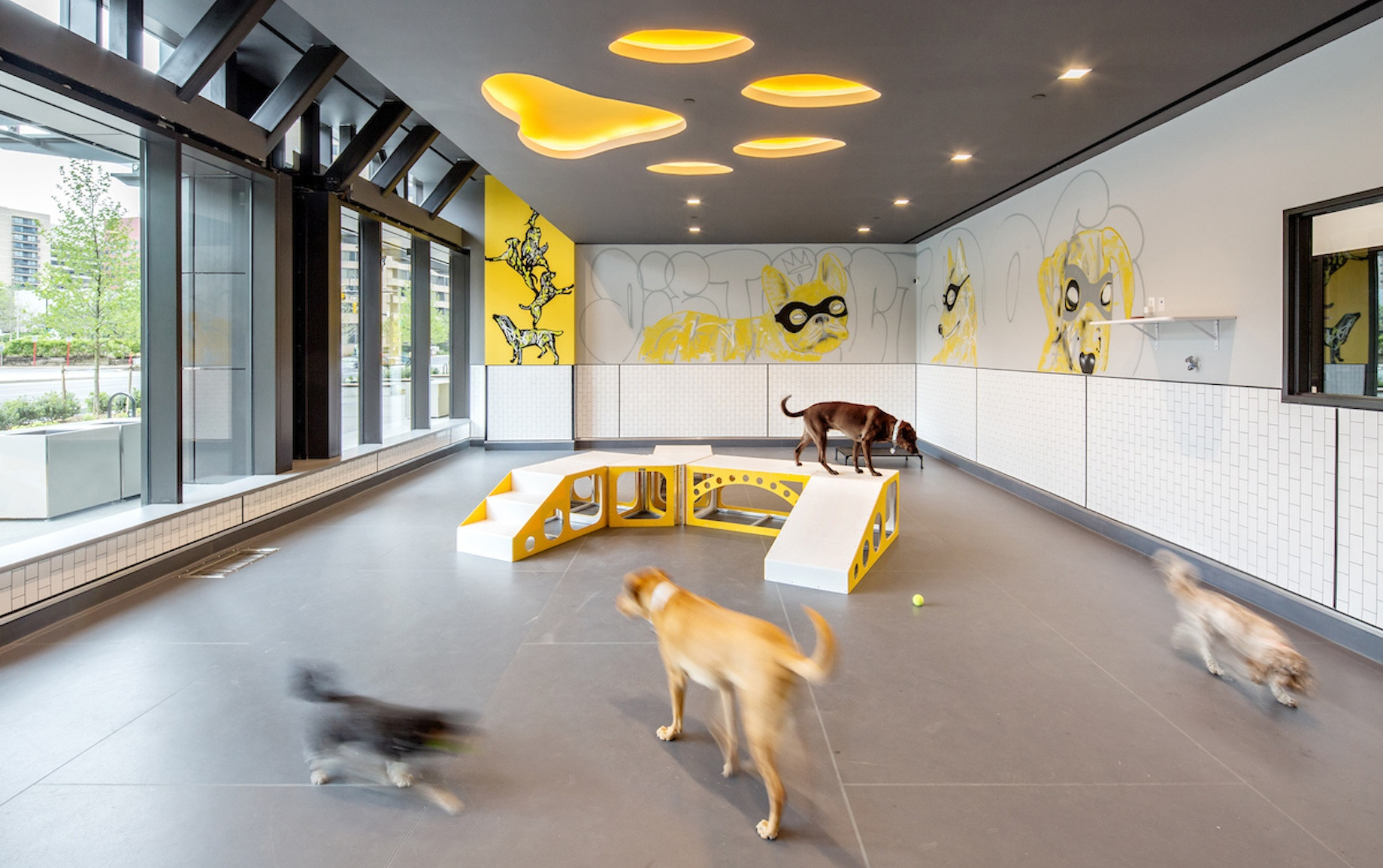Retail property has had its reckoning with oversupply, and after decades of apocalyptic narratives, brick-and-mortar retail has emerged, well, in demand. Now it appears to be office’s turn, as post-pandemic hybrid work forces office property owners to reimagine their models.
Arlington, Virginia, just outside the District of Columbia, has been such a prized office submarket that Amazon chose it in 2018 for its secondary headquarters. Five years and a pandemic later, Phase 1 of Amazon’s HQ2 opened in Arlington in May 2023. Now, the office vacancy across Arlington County sits at 21.5%, representing roughly 9 million square feet of space, according to Arlington Economic Development, or AED.
What is Arlington to do? Based on its new Commercial Market Resiliency Initiative, it appears giving up was not an option. Rather, the local government is taking a page from retail’s playbook and aims to diversify uses. One prime way to repurpose unused office space? Retail. “Waiting to see just how things shake out is not something that we think is the right approach,” said AED director Ryan Touhill. The way people use offices has fundamentally changed with hybrid work, he noted. “We recognize this problem, and we are working very proactively to try to figure out how to help owners reposition their buildings and how to find tenants that want to be in this market. We need to rethink our downtown and our urban business districts.”
The Commercial Market Resiliency Initiative removes some regulatory barriers so office space can be repositioned faster and more easily, whether converting office space to a different use, repositioning a building to make it more competitive for leasing or redeveloping a property to create something entirely different. The first phase changed zoning laws to expand on the types of businesses that are allowed within office buildings. Now, space previously zoned for office might host uses like breweries, urban farms, dog boarding, virtual golf, commercial kitchens, lab space, entertainment and indoor recreation, among other uses.

District Dogs pet boarding and grooming opened its sixth location in 6,000 square feet on Wilson Boulevard in the National Landing neighborhood as part of Amazon’s new campus.
The initiative’s second phase, now underway, will change additional regulations and zoning rules to expedite the repositioning or conversion of obsolete office buildings. As an example, the city is changing policy to allow more exterior signage on buildings.
Not All Conversions Need Be Residential
When converting empty office, “the big focus should not be housing alone but on creating human experiences that drive the economic viability of the buildings,” said Doug Demers, a principal and office director at HKS in Seattle. Options include experiential retail, food-and-beverage, hospitality and sports and gaming, all of which are viable economic powerhouses in the current marketplace, he said. Additional uses to consider include parks, outdoor/indoor venues and people-oriented streetscapes.
Tim Moore — a principal at Blue Haus Group in Hartford, Connecticut — also suggested conversion into industrial, including maker space. Blue Haus Group’s proposals to landlords also have included coworking space for artists and other creatives, as well as podcast and digital media space.

Some property owners in Hartford, Connecticut have opted for short-term solutions to activate empty office space, such as a seasonal indoor farmers market, a table tennis hall, music events and an art gallery.
The Hard Part
Converting empty office isn’t a guaranteed win. Just like adding uses to malls, repurposing office space can be costly, said Todd Caruso, Americas lead for CBRE Retail Services. Bringing a space up to a raw shell for a restaurant or retailer could range from $250 per square foot to $600 per square foot, he said. There also are big issues around structure, such as the addition ofseparate electric metering and venting, as well as the flow of people between different uses, including security issues. Plus, there needs to be demand for the replacement use. “You can put all sorts of uses — light industrial, coworking, schools, medical — but there has to be a market for it, and the same holds true for the ground plane of these office buildings,” he said.
It’s tough to take an office building that didn’t already have ground-floor retail and add a restaurant, gym or some other type of shop space as a fix to the empty office space. For vertical buildings — whether office, residential or hotel — the uses on the upper floors drive the feasibility of the street-level tenants, noted Caruso. “If I’m an office developer that’s going to convert this empty building to a great mixed-use and I want to have some cool amenity on the ground floor, you could plan for it, but you may not be able to occupy it with the right retailers,” he added.
Municipalities’ Role
It’s still early days for office conversions and office space repurposing. Owners are still trying to determine whether to hold onto assets or throw the keys back to the lenders. As in Arlington, public entities can play an important role as the industry works through potential solutions.
“It’s a great opportunity for civic intervention to create a better outcome for the community,” said Demers. Some governments are considering tax hiatuses to support conversion and mitigate buildout costs. Others are looking to introduce special districts that enable flexibility. Seattle is exploring microzoning to allow a mix of learning, playing, working and living uses. “In my opinion, this drives a more resilient economic vitality in urban areas,” Demers said.
Touhill emphasized the need for governments and owners to be proactive. “At a high level,” he said, “this is an opportunity for us to reimagine our urban core.”
He also notes that not all office space needs to be converted. “There’s still a strong office market here in Arlington, and we still have businesses that are seeking to locate here,” said Touhill. “But we know that we have an oversupply of office, and so we want to be as proactive as possible in determining the future fate of what that physical space does.”
By Beth Mattson-Teig
Contributor, Commerce + Communities Today